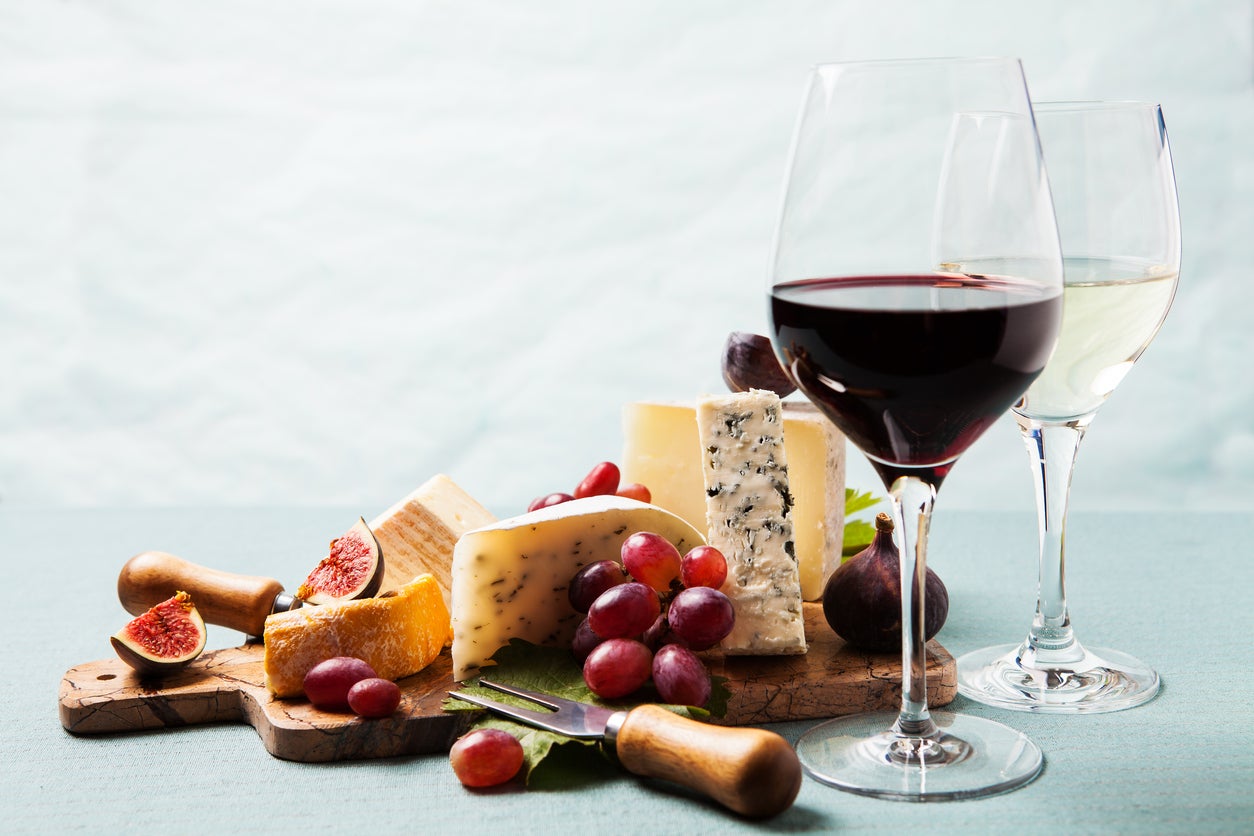Cheese and wine is good for your brain, study finds
Research shows that those who enjoy the rich dairy food and a regular glass of red are helping to prevent cognitive decline

Your support helps us to tell the story
From reproductive rights to climate change to Big Tech, The Independent is on the ground when the story is developing. Whether it's investigating the financials of Elon Musk's pro-Trump PAC or producing our latest documentary, 'The A Word', which shines a light on the American women fighting for reproductive rights, we know how important it is to parse out the facts from the messaging.
At such a critical moment in US history, we need reporters on the ground. Your donation allows us to keep sending journalists to speak to both sides of the story.
The Independent is trusted by Americans across the entire political spectrum. And unlike many other quality news outlets, we choose not to lock Americans out of our reporting and analysis with paywalls. We believe quality journalism should be available to everyone, paid for by those who can afford it.
Your support makes all the difference.Some of our pandemic “bad habits” may not be so bad after all, as new research has found that wine and cheese could protect us against cognitive decline.
While the research is not a good enough excuse to go wild on a cheeseboard and down a bottle of wine every night during the festive period, "[we’re] pleasantly surprised”, said Auriel Willette, assistant professor in Food Science and Human Nutrition at Iowa State University, who was involved in the study.
The four-year study, involving 1,787 people, aged between 46-77, was conducted with participants in the UK. It asked them to answer a “Food Frequency Questionnaire" about their intake of certain foods from fresh fruit and salad to oily fish, coffee, beer and cider, red wine and cheese.
Then they were required to carry out a “Fluid Intelligence Test” to see how quickly they could think on the fly.
The research took in to account the kinds of food and alcohol the participants consumed between 2006 and 2010, and then during follow up tests between 2012 and 2013 and between 2015 and 2016.
The results, published in the November 2020 Journal of Alzheimer's Disease, showed that red wine and cheese was most likely to prevent cognitive decline. Cheese was found the be the most effective food to prevent against a decline in age-related brain function.
“I was pleasantly surprised that our results suggest that responsibly eating cheese and drinking red wine daily are not just good for helping us cope with our current Covid-19 pandemic, but perhaps also dealing with an increasingly complex world that never seems to slow down,” said assistant professor Willette.
“While we took into account whether this was just due to what well-off people eat and drink, randomised clinical trials are needed to determine if making easy changes in our diet could help our brains in significant ways.”
Cheese and wine may also protect people from the symptoms of Alzheimer's disease, depending on other genetic factors involved, explained researcher Brandon Klinedinst. “Depending on the genetic factors you carry, some individuals seem to be more protected from the effects of Alzheimers, while others seem to be at greater risk,” said the study’s author Klinedinst.
A weekly intake of lamb was also shown to improve long-term cognitive prowess, but salt had the reverse effect. The excessive consumption of salt was found to increase the risk of cognitive problems.
“Perhaps the silver bullet we’re looking for is upgrading how we eat. Knowing what that entails contributes to a better understanding of Alzheimer’s and putting this disease in a reverse trajectory,” said Klinedinst.
Alzheimer's disease is the most common type of dementia or loss of memory in the UK, the NHS describes it as “a syndrome (a group of related symptoms) associated with an ongoing decline of brain functioning. It can affect memory, thinking skills and other mental abilities”.

Join our commenting forum
Join thought-provoking conversations, follow other Independent readers and see their replies
Comments